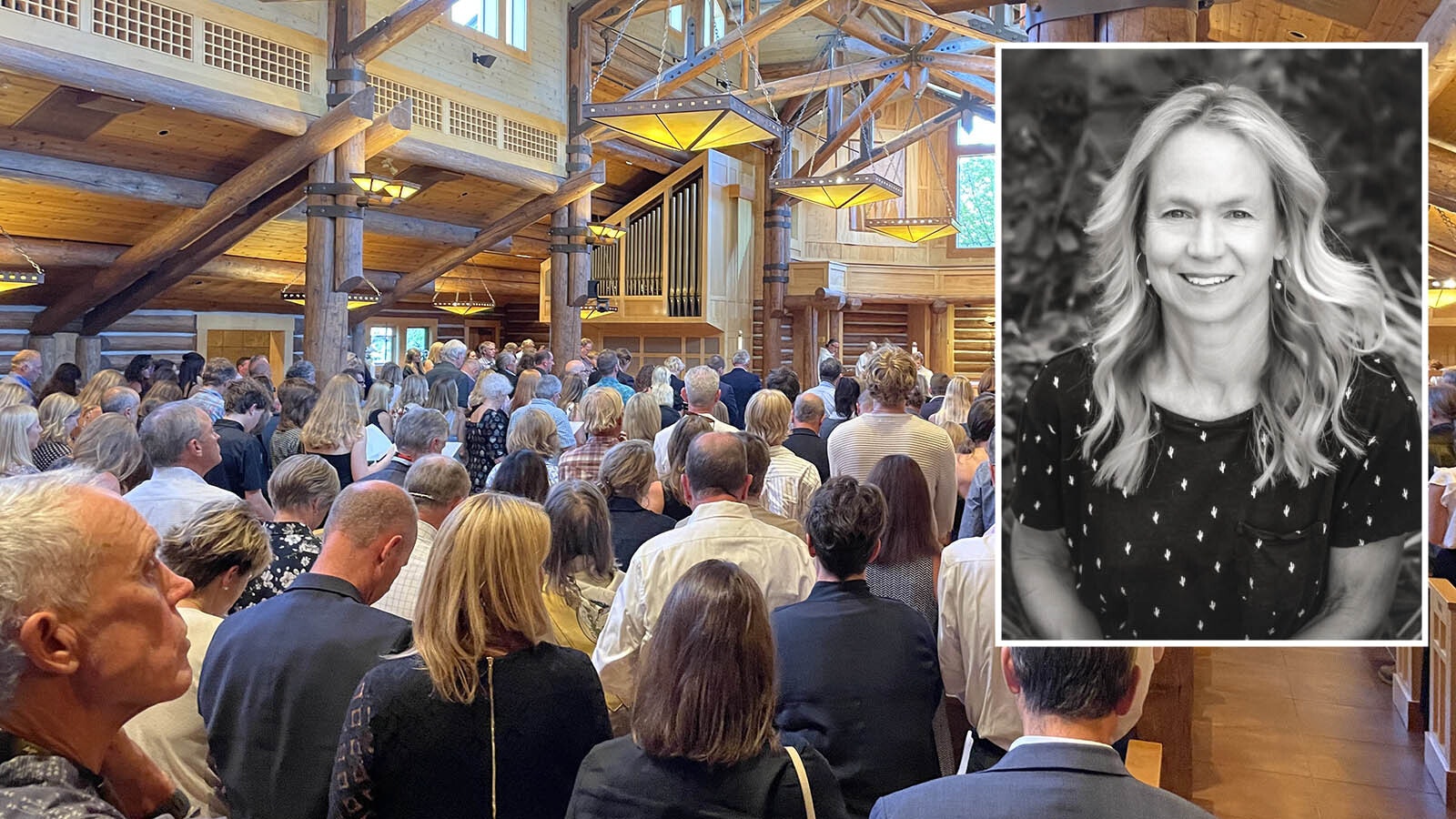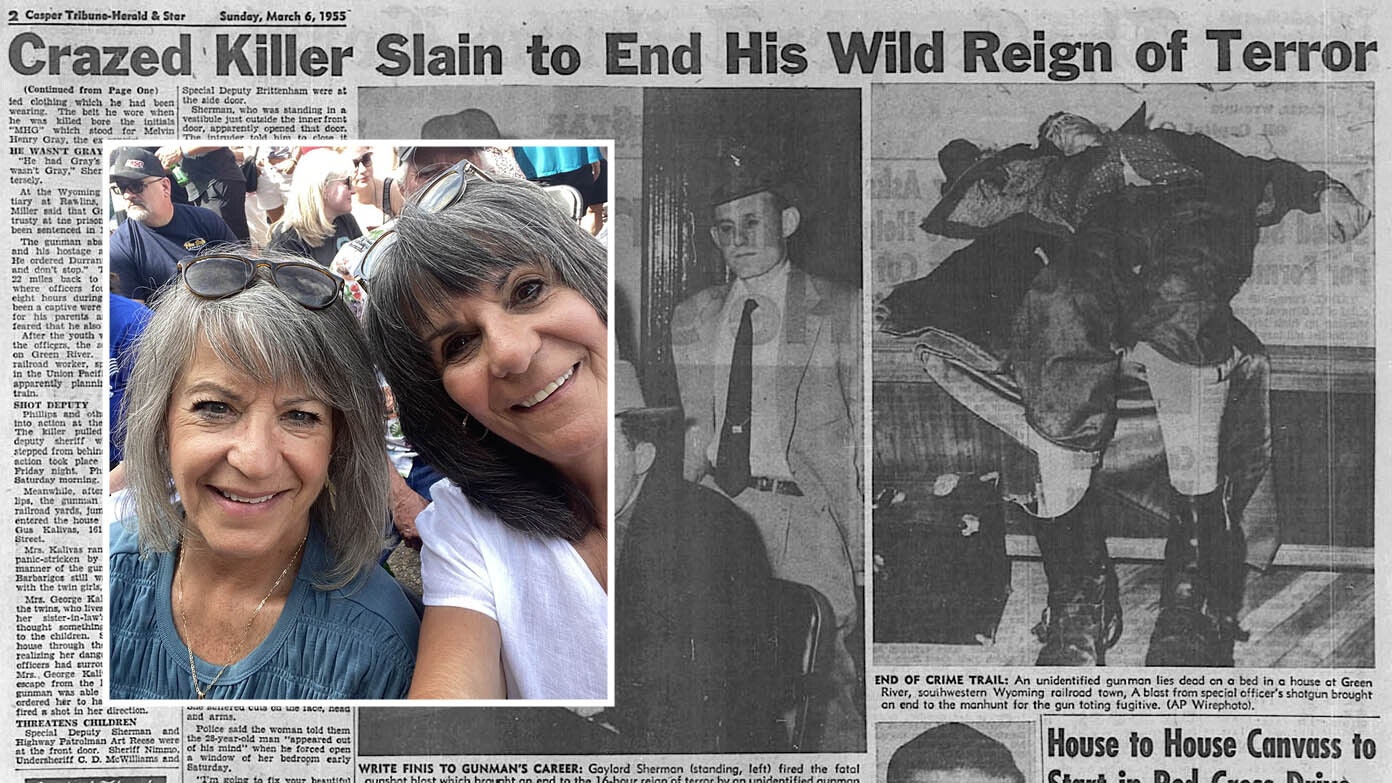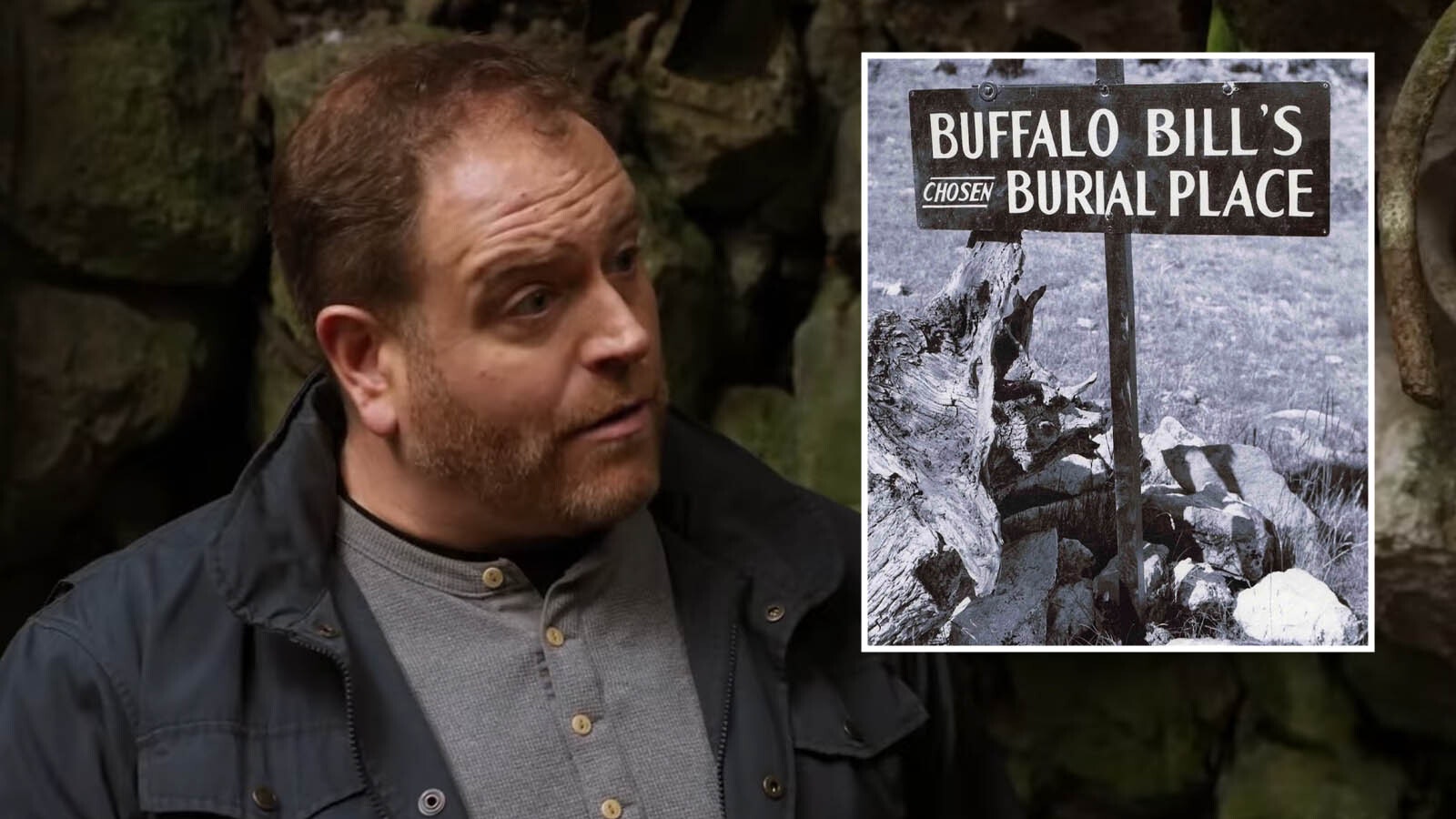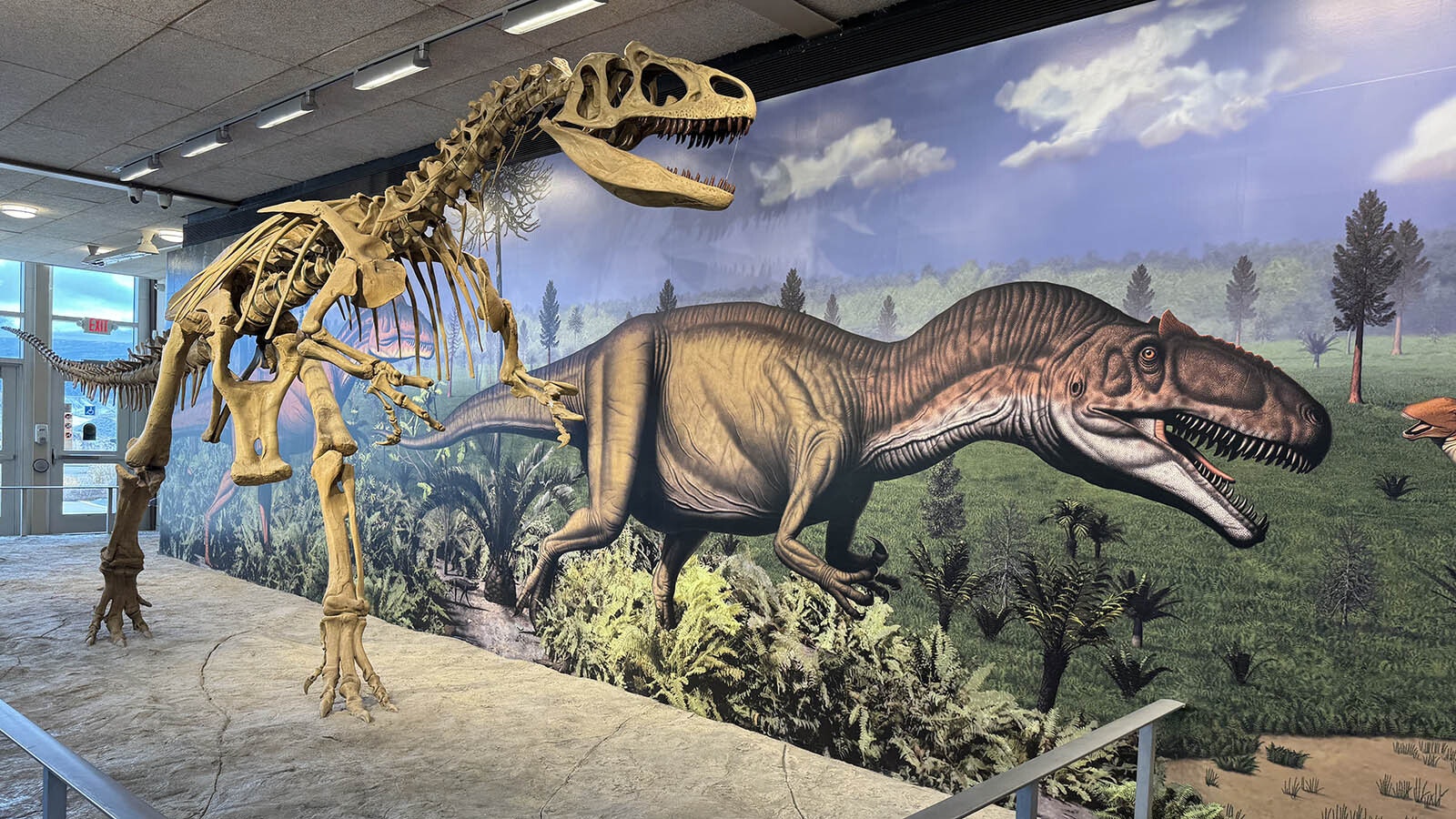For the past 50 years, Jack Schmidt has been reciting cowboy poetry and impressing the ladies with his cooking.
His bushy mustache cannot contain his welcoming grin beneath his large Stetson as he talks about his passions for the cowboy life. Schmidt has been involved in the cattle business since his youth and in retirement.
He continues to do the two things he loves best: reciting cowboy poetry and cooking in a Dutch oven.
“You get to cook outside, and there's usually alcohol involved,” Schmidt said of his culinary art. “You know, it doesn't get any better than that.”
Cowboy poetry fits just about any situation, Schmidt further explained.
To illustrate the point, he talked about a recent meeting at the National Museum of Military Vehicles in Dubois.
While twiddling his thumbs during the speeches, he had discovered to his chagrin that there was nowhere to hang his hat.
Everyone had been forced to place their Stetsons on the floor.
During a break, he wandered over to the security guard sitting outside the room reading a paper.
After some general chit-chat, Schmidt told him about the situation by launching into a poem by Wally McRae called “Hat Etiquette.”
There are rules of decorum and conduct
To which all good cowboys attest
Call them mores, traditions or manners
They are part of the code of the West
But cowpokes have got this dilemma
That confuses those sage diplomats
It involves the whens and when not to's
Concerning the wearing of hats.
“You are right,” the guard nodded his head vigorously after Schmidt had recited the entire poem. “We need a hat rack.”
“So, you will tell the owner of this joint?” Schmidt asked the gentleman.
“I am the owner,” came the answer from Dan Starks, founder of the museum. After this introduction, the two men spent the next hour exploring the museum between spurts of cowboy poetry.

History Of Cowboy Poetry
Schmidt’s deep radio voice rumbles and captures the essence of the poems that he treasures and recites. These poems are an important part of Wyoming’s heritage and got their start on the night watch as young cowboys spoke to their herds to keep them from getting spooked.
“The cowboys started off talking to their cattle and then, pretty soon, they would come up with small rhymes and these in turn became full poems,” Schmidt said. “They would then sing these poems to the cattle, and that’s how cowboy poetry and singing got its start.”
These early cowboy poems and songs would have been lost to time except for an impulsive young cowboy. In the 1890s, Jack Thorp was hunting for strays when he heard the strains of a ballad that was unknown to him.
Now, boys, I’ll tell you a story
Of a horse I owned long, long ago …
Intrigued, Thorp made camp with the cowboys but none knew the rest of the song. They only knew that it was called “Dodgin’ Joe.”
Thorp wrote the stanzas down in his notebook with, he later wrote, a big idea buzzing around in his head. The next morning, the young cowboy had determined he would quit wrangling cows and become a drifter, chasing down the stanzas of these songs across the countryside.
“Few people know of the difficulties encountered in gathering those first songs,” Thorp wrote in his article “Banjo in the Cow Camps,” posthumously published in the August 1940 issue of The Atlantic Monthly.
“In the ’90’s, with the exception of about a dozen, cowboy songs were not generally known,” he wrote. “The only ones I could find, I gathered piecemeal on horseback trips that lasted months and took me hundreds of miles through half a dozen cow country states.”
Over the next few years, Thorp collected these scraps of song. Different versions of each poem had grown from the original and it was up to Thorp to fit them back together.
He wrote that it was no easy task, “Take into account that many of the songs had to be dry-cleaned for unprintable words before they went to press, and you get some notion of the chore a song collector had who was only a cowboy himself.”
Thorp described the scene that set him to chasing the poetry on the wind, “The campfire flickered and fell. I knew there would be maybe half a dozen men sprawled around it, their day’s riding done, supper over, and a banjo-pickin’ cowboy to tell a story under the stars: a story in verse, about their own country and kind, in their lingo, home-grown and maybe as thorny as cactus.”
Since most of the poems were piecemealed together, it was impossible to determine who had created the original. Thorpe tried over the years to determine authorship with very limited success.
“Who wrote the cowboy songs?” Thorp asked over 80 years ago. “The authorship of many of them is doubtful or unknown. Often the authors, if they hailed from the range direct, didn’t bother or care to acknowledge authorship.
“'Hell in Texas’ is a popular ballad describing a supposed deal between the Lord and the Devil by which the latter acquired some land so bad that the Lord couldn’t use it, but perfectly suited to the Devil’s needs for a little hell on earth: he ‘put thorns on the cactus and horns on the toads . . . poisoned the feet of the centipede,’ and did more of the same — and called it Texas.
“There was ‘Fightin’ Mad,’ too, a ballad about a cowboy who was offered ginger ale to drink. This I got at the annual Colorado Springs Roundup from Jean Beaumondy. Jean was then the champion trick girl roper of the world — she’s still good, according to accounts of a movie film in which she did her stuff less than a year ago.
"‘Did you write the song, Jean?’ I asked her.
"‘Oh, I was around when it was written,’ she said. And that’s all I ever could get out of her.”
Today, cowboy poets will gather and recite these poems of long ago that Thorpe had collected on those long horse rides across the plains. Some of these modern-day cowboys will even write their own poetry although most will just recite their favorites. Schmidt called himself a reciter for over 50 years until, that is, he started forgetting the recipes for his Dutch oven cooking.

Recipes In Rhyme
Schmidt explained that cowboy poetry is a mental exercise and the reason he recites them is to keep his mind from turning into mush.
“It seems like my generation, the boomers, we're losing our memories so damn fast,” Schmidt said. “I was cooking on a wagon train after I retired, and I got to where I couldn't remember the recipes.”
He shook his head ruefully, remembering the scene. He was standing by the bed of the wagon with the flour and buttermilk trying to impress his audience with his culinary magic. In that moment, his mind had gone blank, and he had forgotton all his measurements.
“I could remember stuff like the ‘Cremation of Sam McGee’ that takes 12 minutes to recite,” Schmidt said. “But I got to where I couldn't remember how to make a damn biscuit.”
So that day on the wagon, Schmidt started reciting a poem about biscuits and that led to other recipe poems from making beans to ice cream.
“I use that just as a way to kickstart your memory and that’s how I remember biscuits,” Schmidt said, launching into the stanzas of the first cowboy poem he had written.
“The secret to making good biscuits,
a favorite quick bread on the ranch,
is you don't treat them rough
or knead them too much.
You got to use a kind gentle hand.”
The Future Of Cowboy Poetry
In the 1940s, towards the end of Thorp’s life in the saddle, he wrote, “A young man’s impulse sent me out on the road collecting cowboy songs. You would ride those ranges in vain today to find men who ride and make songs and sing them in the old free larruping spirit and under like conditions: —
What’s become of the punchers
We rode with long ago?
The hundreds and hundreds of cowboys
We all of us used to know? . . .
But the country, and the life as it was, survive authentically in the balladry, crude though it may have been, that grew out of the very lives the cowboys led and the troubles they had; and our literature is richer for it.”
Cowboy poetry saw a revival in the 1980s and 1990s as old cow punchers gathered, reciting the poems of old. Newer ones written by the likes of cowboy poet Baxter Black, who died in 2022, had audiences, even late-time talk show host Johnny Carson, laughing along to poems about the cruelty of gardening and other topics close to a cowman’s heart.
“Cowboy poetry is self-deprecating,” Schmidt said. “You don't hurt anybody, but you make people laugh.”
Schmidt is proof that you can make people laugh – and preserve our Wyoming heritage - with something as simple as recipes from the cow-trail.
Contact Jackie Doroty at jackie@cowboystatedaily.com

Jackie Dorothy can be reached at jackie@cowboystatedaily.com.





